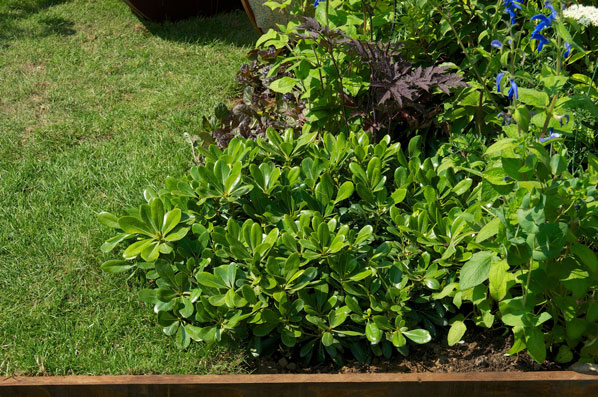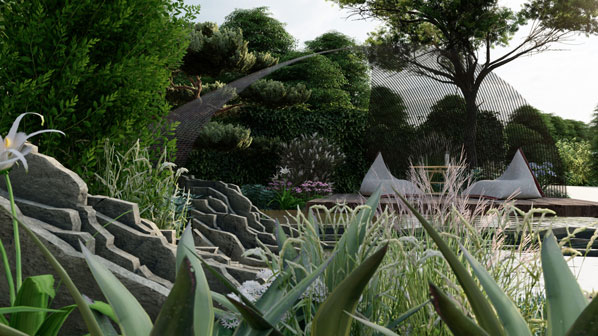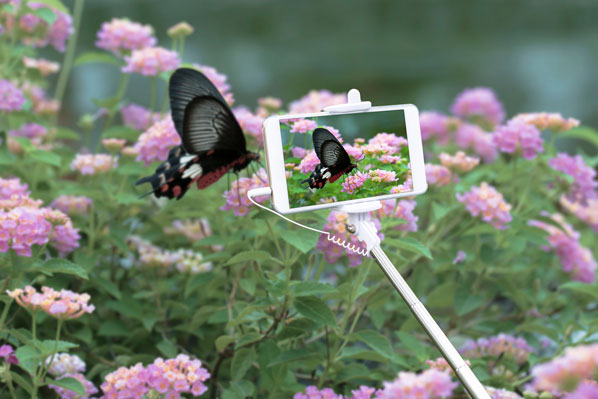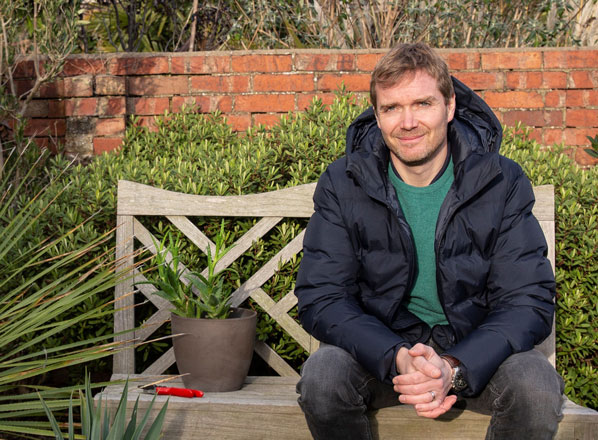As a father-of-three, garden designer Joe Perkins is well aware that social media can lure young people away from the great outdoors.
Enter Beyond The Screen, Perkins’ Facebook-sponsored show garden at this year’s RHS Chelsea Flower Show, within which he’s going to reveal how online and offline worlds can come together.
Visitors may think the Facebook garden, set in a 10x10m plot in the ‘Space to Grow’ category, is going to be high-tech, with state-of-the-art screens and speakers popping out from behind the flora and fauna. But Perkins’ vision is very different.
It’s a coastal garden for young people, featuring plants from around the world that can withstand salt-laden winds and harsh weather. Euphorbias, agaves and maritime pines are among the plantings.

“I’ve got plants from Mexico, the Balearics, India and the US, but the point is, they all share this tolerance of particular conditions, so they have these shared interests – which brings me back to the community groups on social media.”
Other elements of the garden include water, a copper canopy and a dramatic rock formation.
“The coastal element for me is all about connection. The oceans connect us all geographically, water connects us physiologically and as a landscape, it’s evolving, just as online communities are constantly shifting and evolving,” he explains.
There’s a copper canopy which references back to connectivity (copper is a conductor), the parallel being that social media is a conduit for global interaction.
He’s also using vertical layers of rock to show that geological forces have transformed the landscape, just as social media has changed the social environment in which we live.

Perkins, 42, who runs his own garden design business in Brighton, has been involved in many Chelsea show gardens over the years, but this is his first solo project. He approached Facebook with a design plan, and they were quick to jump on board.
“My inspiration is a very personal one. It’s drawn from my experience of having family holidays on the Atlantic coast of Spain. My wife’s family is from the Basque country and I’ve taken my three young boys there every summer for years.”
His aim is to show how our worlds – both online and offline – collide, and he hopes the Facebook garden will spark debate about the value of social media.
“It’s about having a proper discussion around how we can use it better, and recognising the difference between how we should and shouldn’t be using it, and how we can be responsible.
“Social media is about global connection and the possibilities it’s opened up for us to connect with people all over the world, and join like-minded people in community groups, on Facebook in particular. In the UK, there’s something like 1.5 million gardeners on Facebook.”

Facebook is partnering with the community charity Groundwork, which works with disadvantaged young people throughout the UK, on the project. Some of Groundwork’s young ambassadors will be helping to build the garden, and getting involved with moving it into the community once the show’s over.
“While you can argue that young people have less inclination to go out and engage with nature, you could equally argue that they’re doing a lot of positive stuff online, and a lot of that involves gardening,” Perkins says.

On a personal level, Perkins’ sons’ introduction to social media isn’t too far away, with the eldest aged 12 and the youngest aged eight.
“That’s really why I wanted to explore and open up the debate about what we should be doing as parents. How can we help young people, and what do they themselves think about the time they spend online? Many people of my generation feel that time spent online is negative, but what do younger people think?
“Independent research has found that young people feel a lot of the time they spend online is productive and positive, because they engage in community groups, community projects, shared interest groups and keeping in touch with friends and family. That can reduce loneliness, help engagement and actually get stuff done in the real world.
“Obviously, the negatives are mental health and wellbeing, and all the headlines we’ve read about. But social media isn’t going away, so let’s look at what’s good about it, talk about what’s bad and see if we can actually produce a healthy discussion about how we can move forward.”
And what if the only thing you see your teenager doing in the garden is taking a selfie, unaware of the real beauty that lies around them?
“By doing that, young people are broadcasting our fantastic industry around the world,” he says.
“Look at the big UK growth in interior plants. It’s clear from social media that young people are very interested in plants and how they can use them to decorate their houses. If you can make gardening cool and desirable, that can only be a good thing.”
The RHS Chelsea Flower Show runs from May 21-25. For details visit rhs.org.uk

